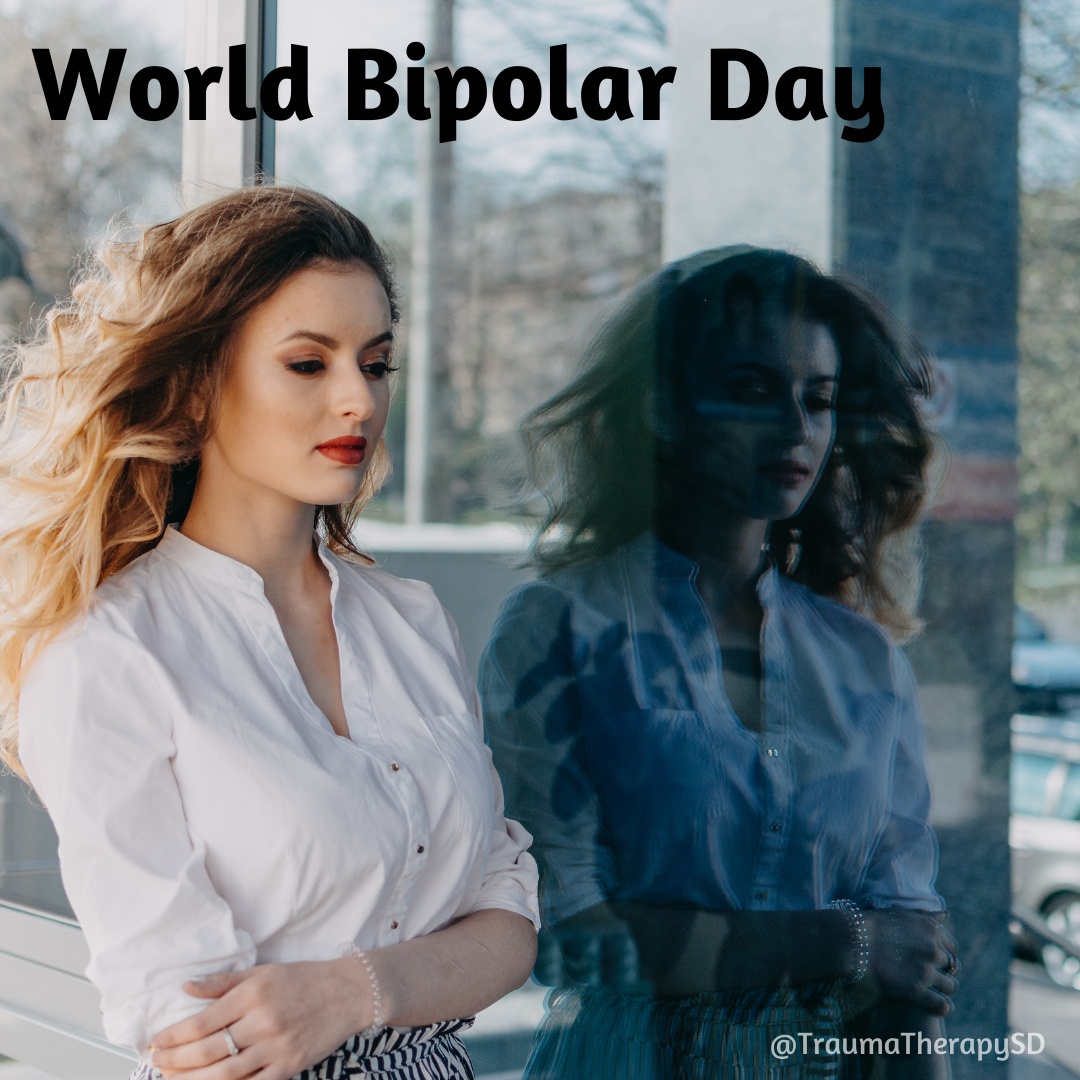World Bipolar Day

World Bipolar Day is coming up on March 30. This day is designed to raise awareness worldwide of bipolar conditions and to work to eliminate social stigma whilst providing information to educate and help people understand the condition.
Bipolar disorders include experiences of both depression and mania/hypomania. These mood swings can affect the person’s sleep, energy, activity, judgement and behavior. In extreme cases of either the highs or the lows, the person can become psychotic or delusional, losing touch with reality. Mood swings can happen only rarely or multiple times a year.
Most frequently treatment includes medications and therapy. Hospitalization may be required if/when the person is in an extreme state of depression or mania. Some people enjoy the feelings of euphoria and productivity that mania/hypomania can bring, however these highs are followed by an emotional crash and sometimes with legal, financial or relational trouble.
According to the National Institute of Mental Health (NIMH), approximately 2.8% of US adults suffered from a bipolar disorder in the past year, and about 4.4% of US adults will have a bipolar disorder in their lifetime.
Among mood disorders, including depression and anxiety disorders, bipolar disorders are the most impairing, and an estimated 82.9% of people with bipolar disorder had serious impairments.
According to the American Journal of Psychiatry, the LGBTQIA+ community faces higher rates of all mood disorders, at least 1.5x higher rates than the heterosexual and cisgender counterparts. There is much research and evidence to show that stigma and discrimination play a significant part in these health disparities.
Source: NIMH and the Mayo Clinic










